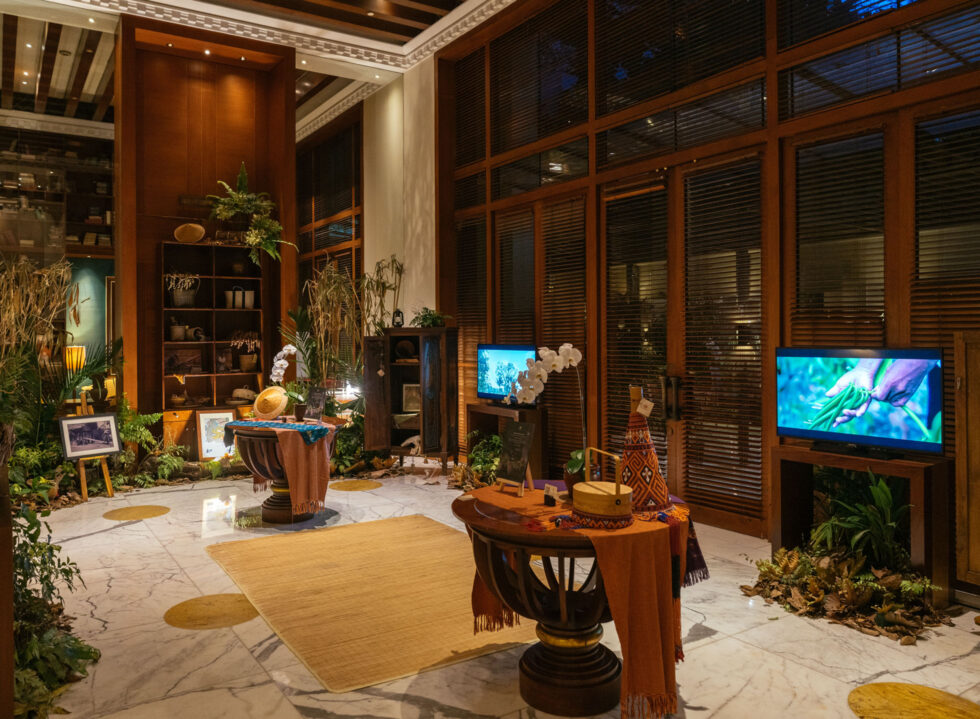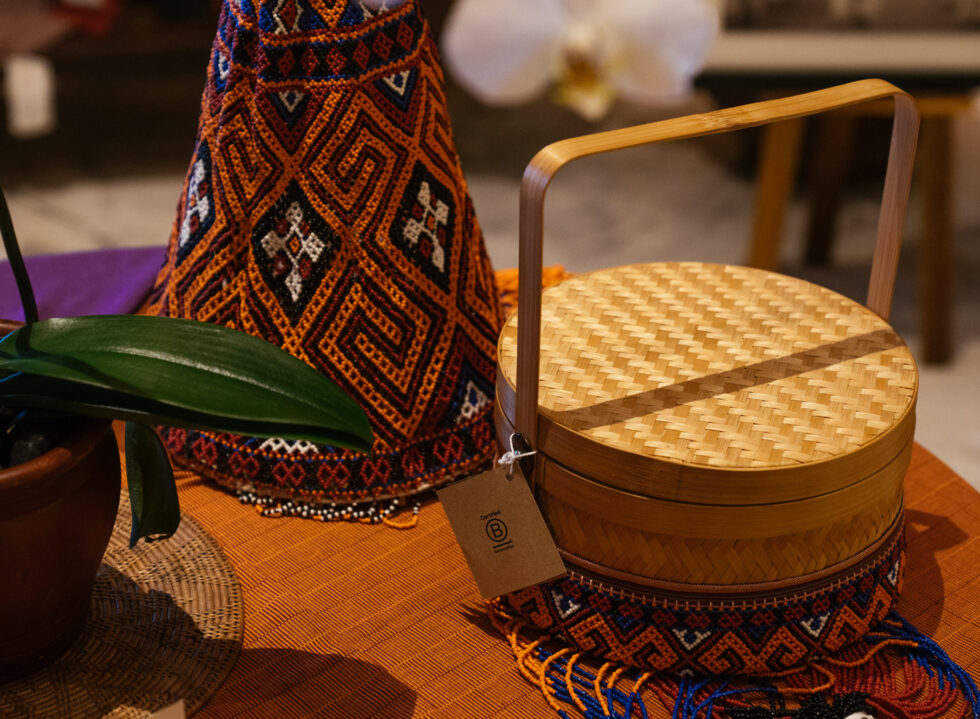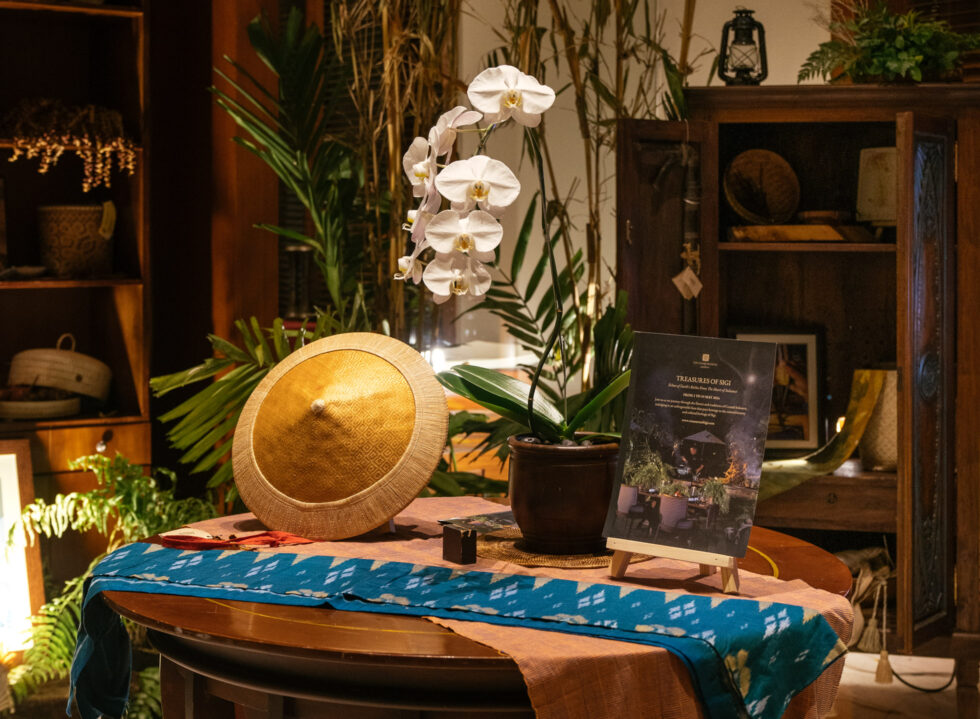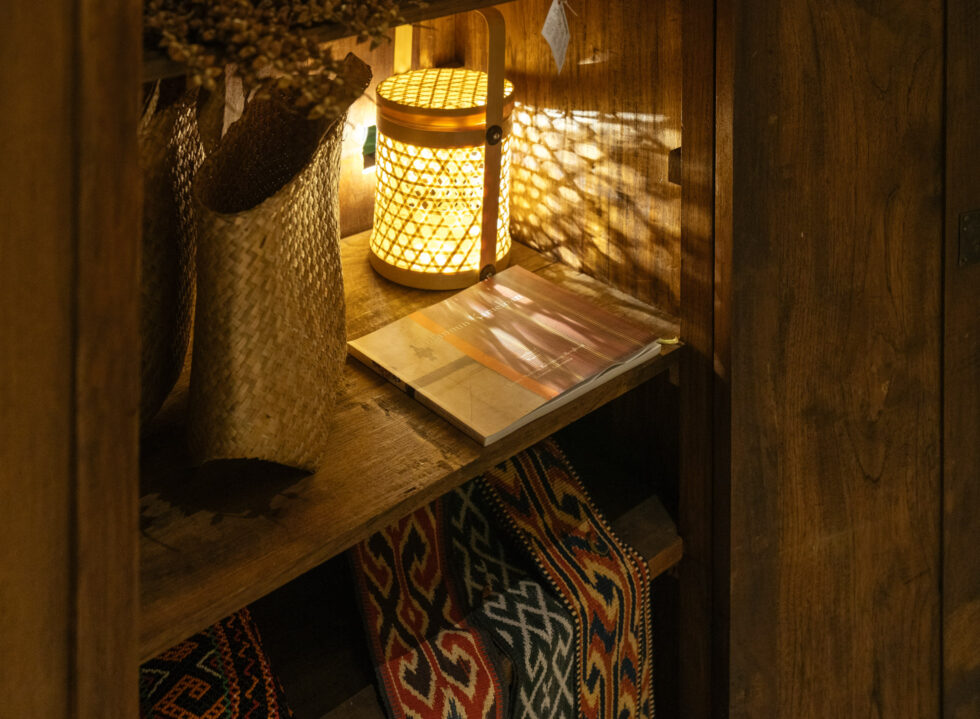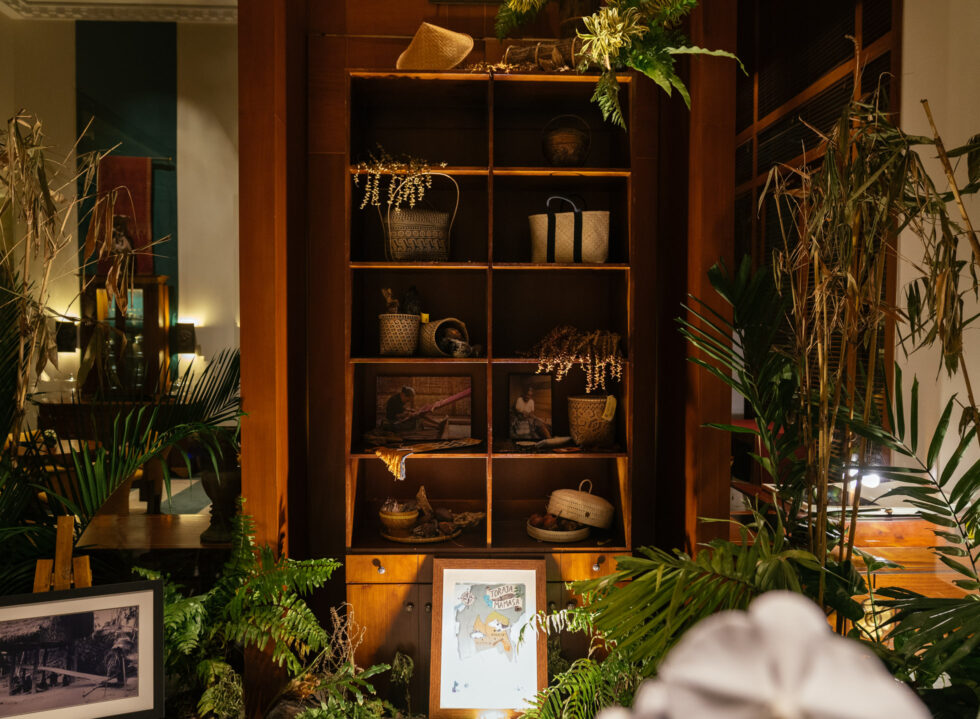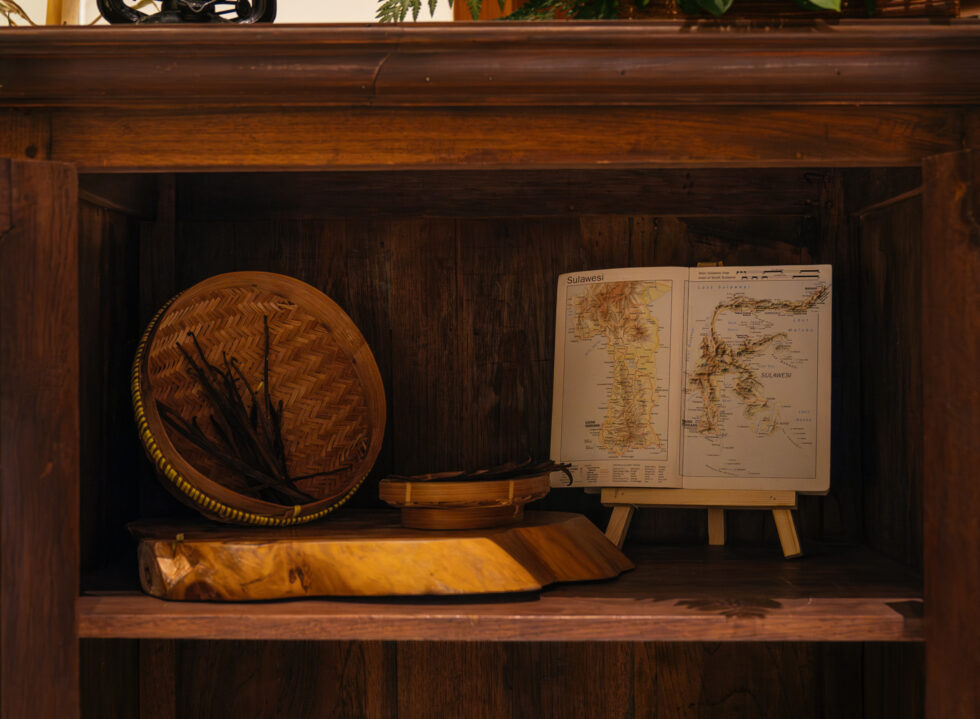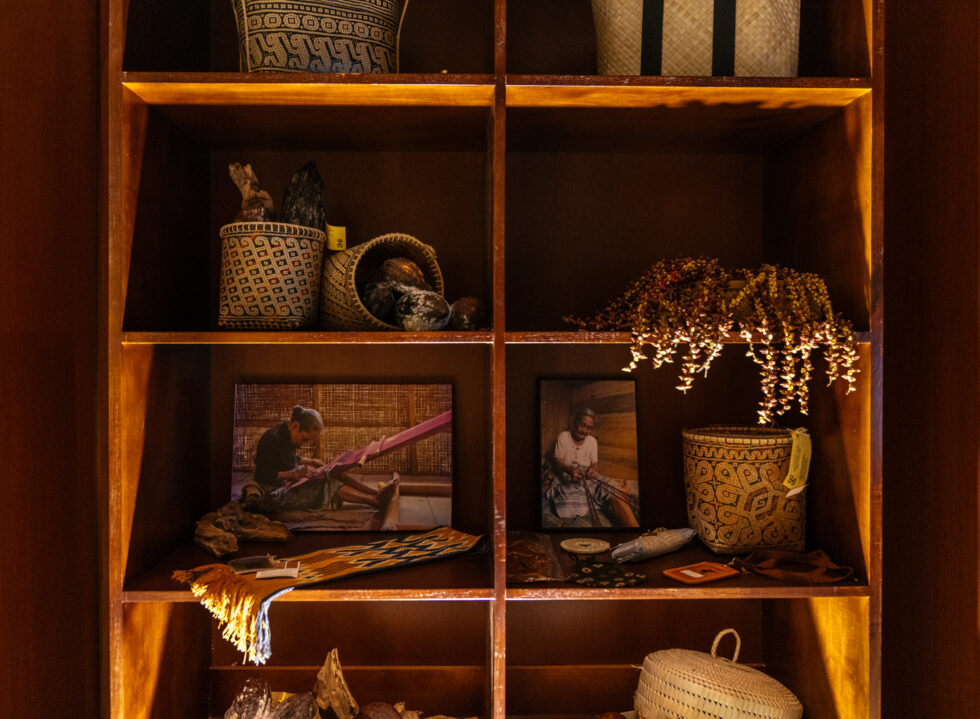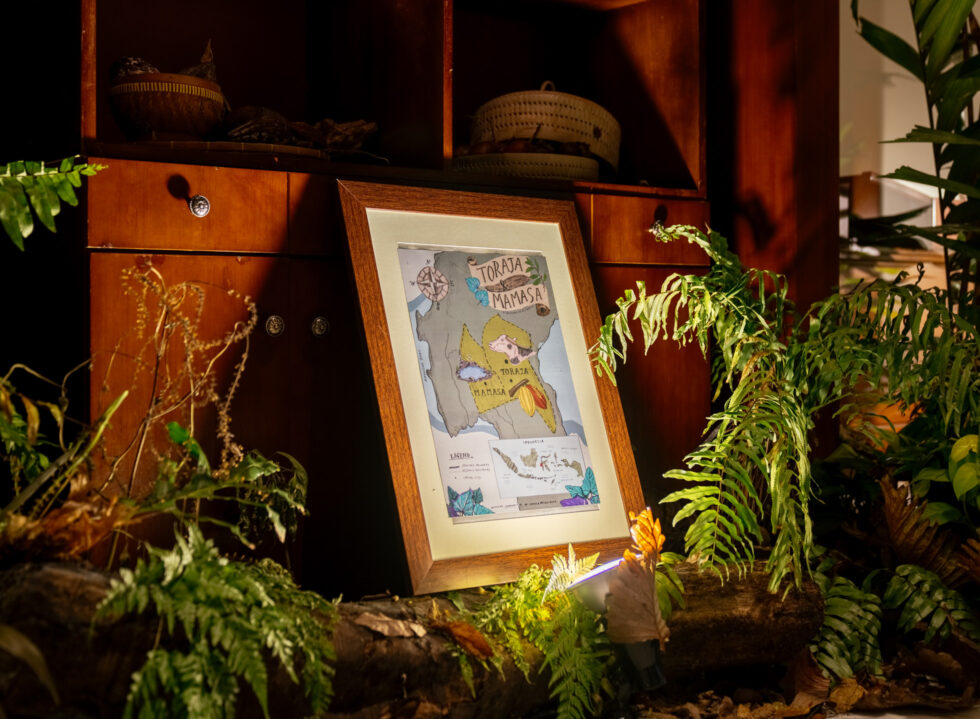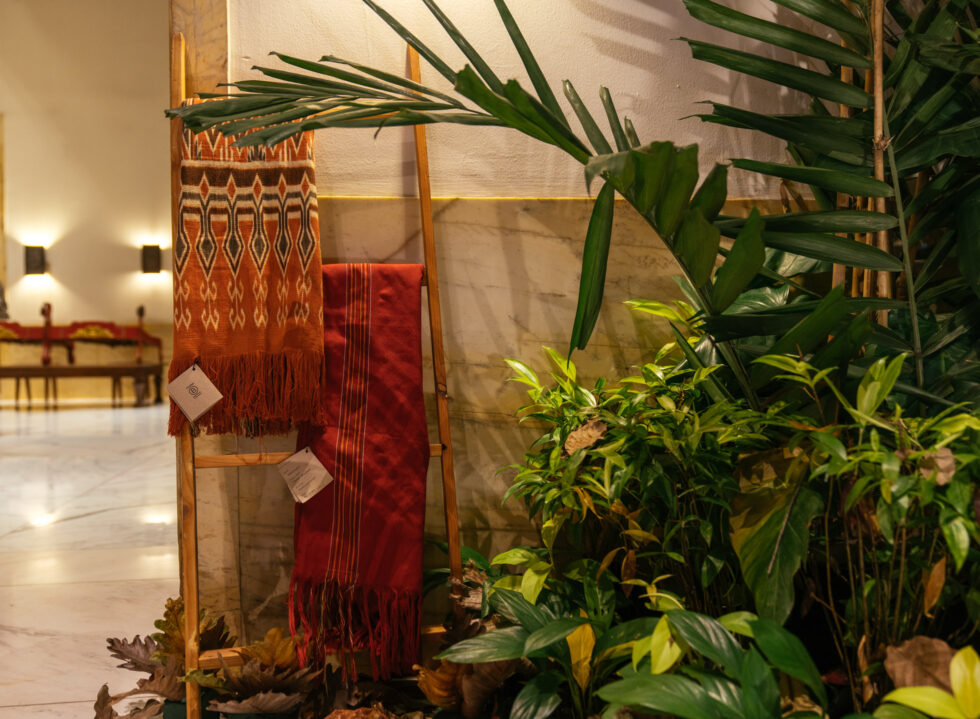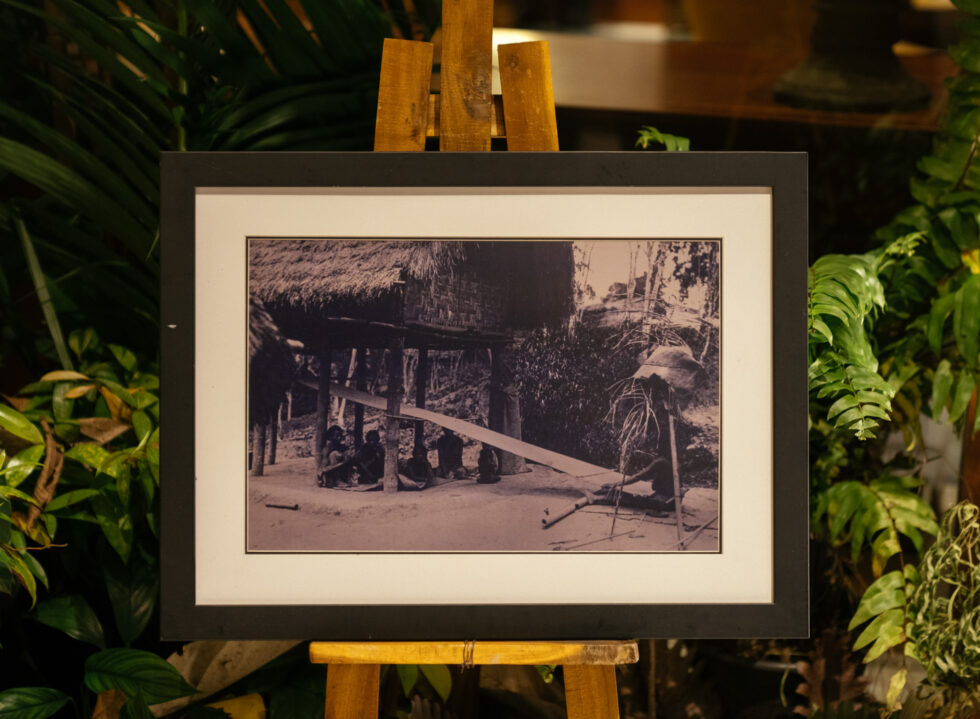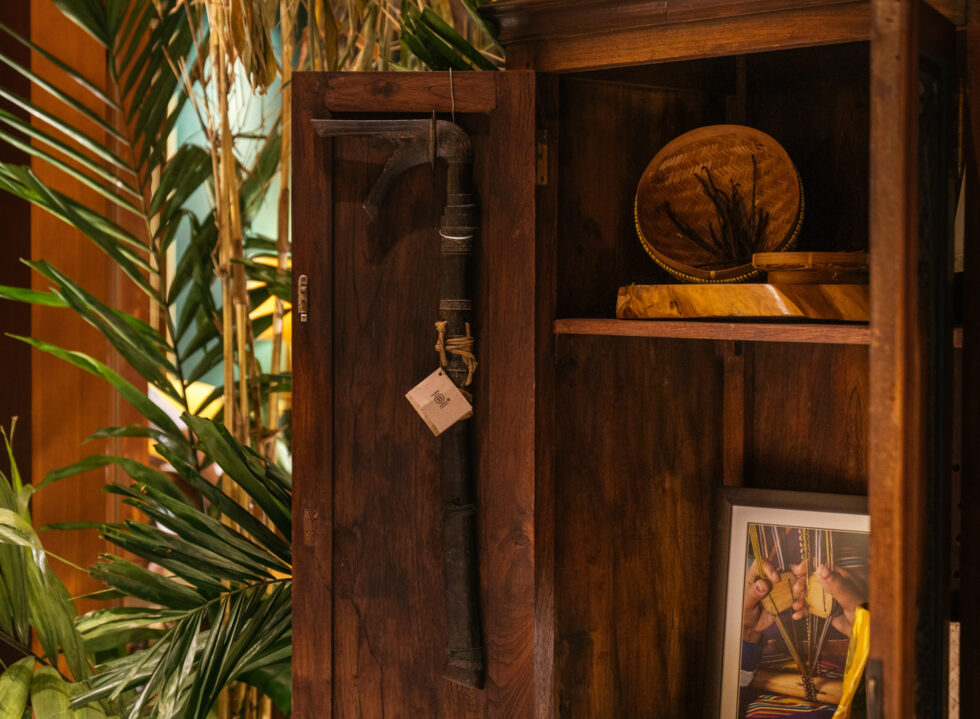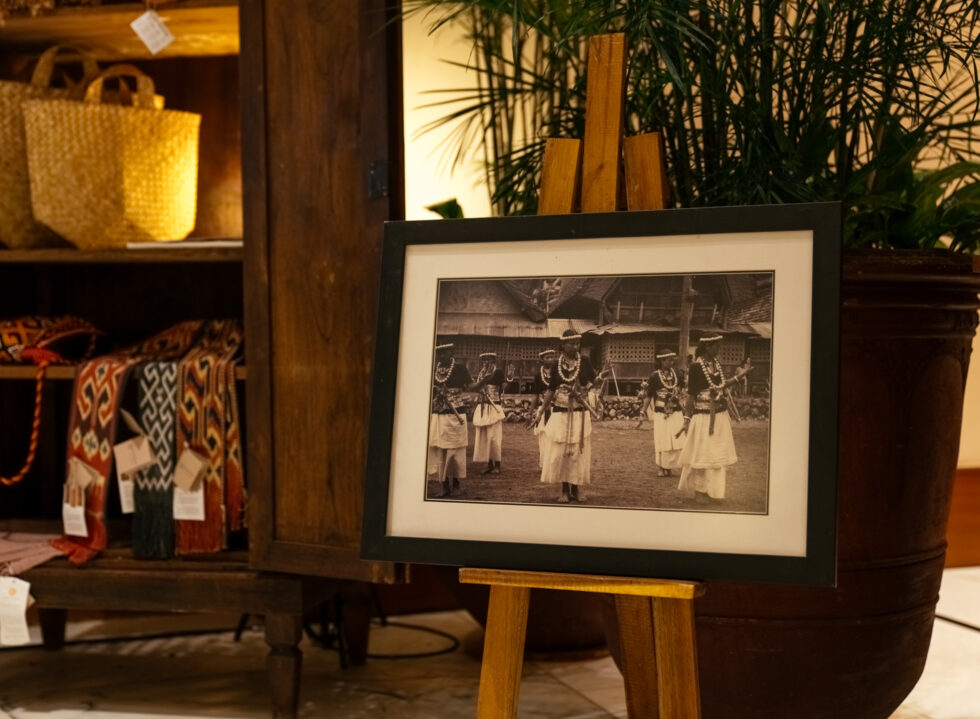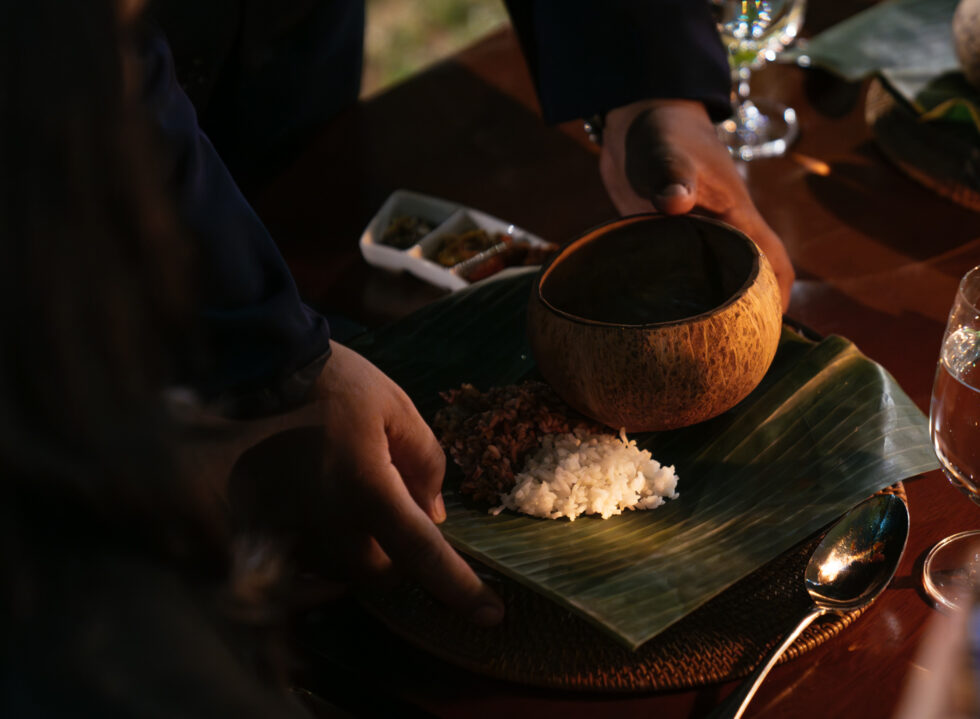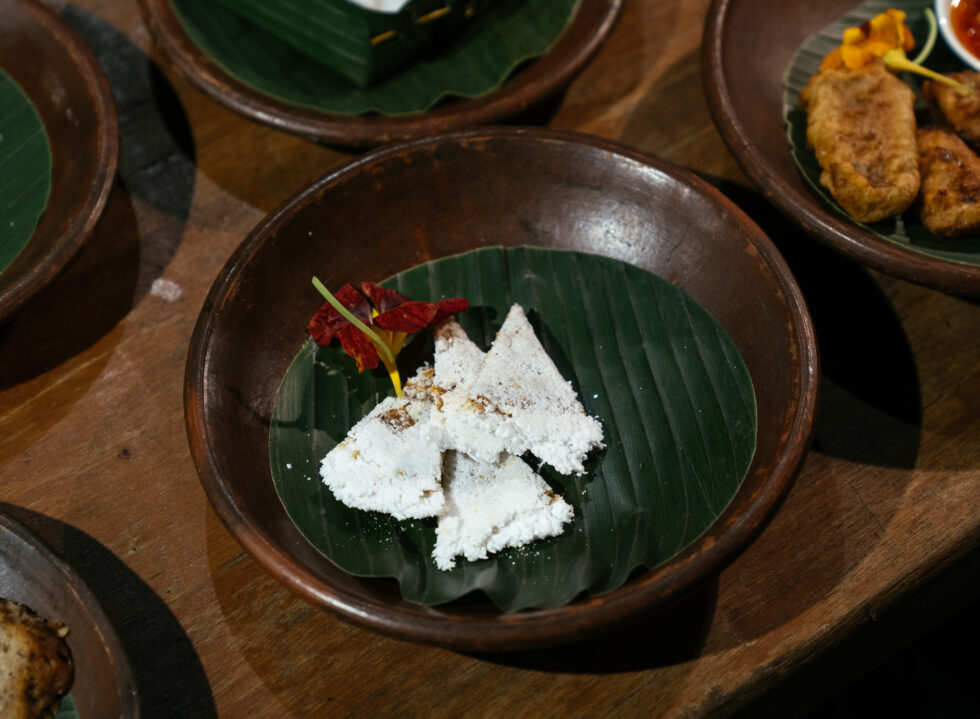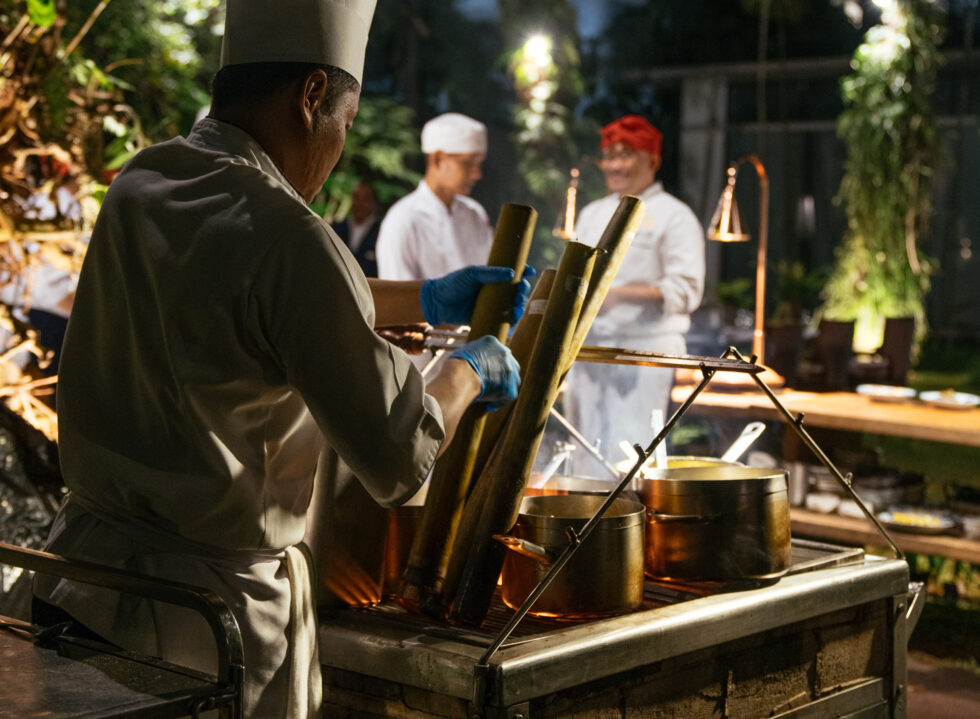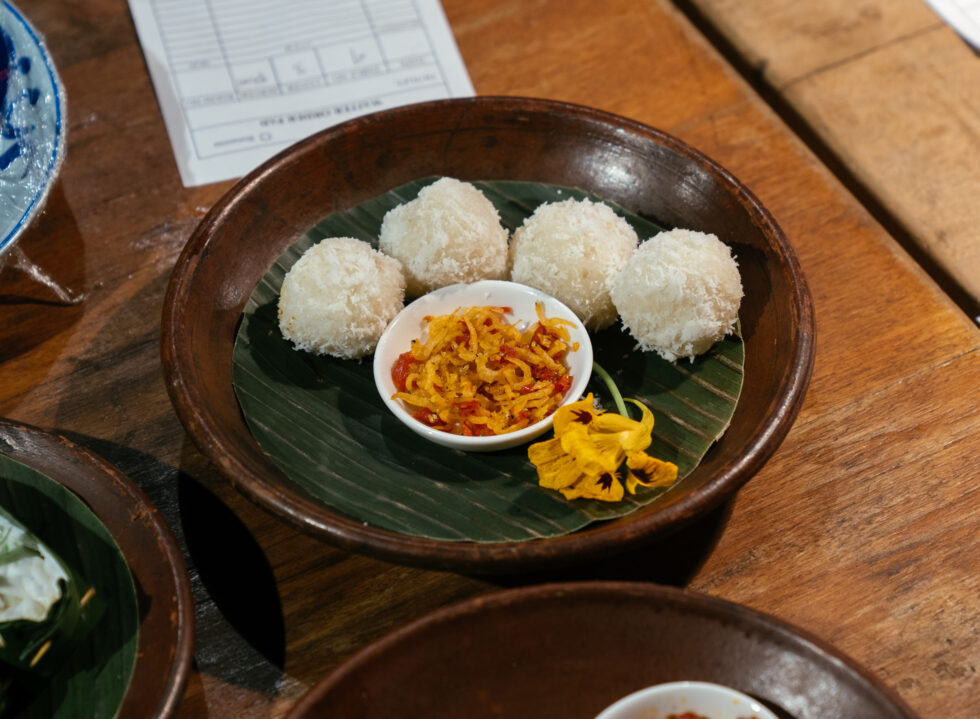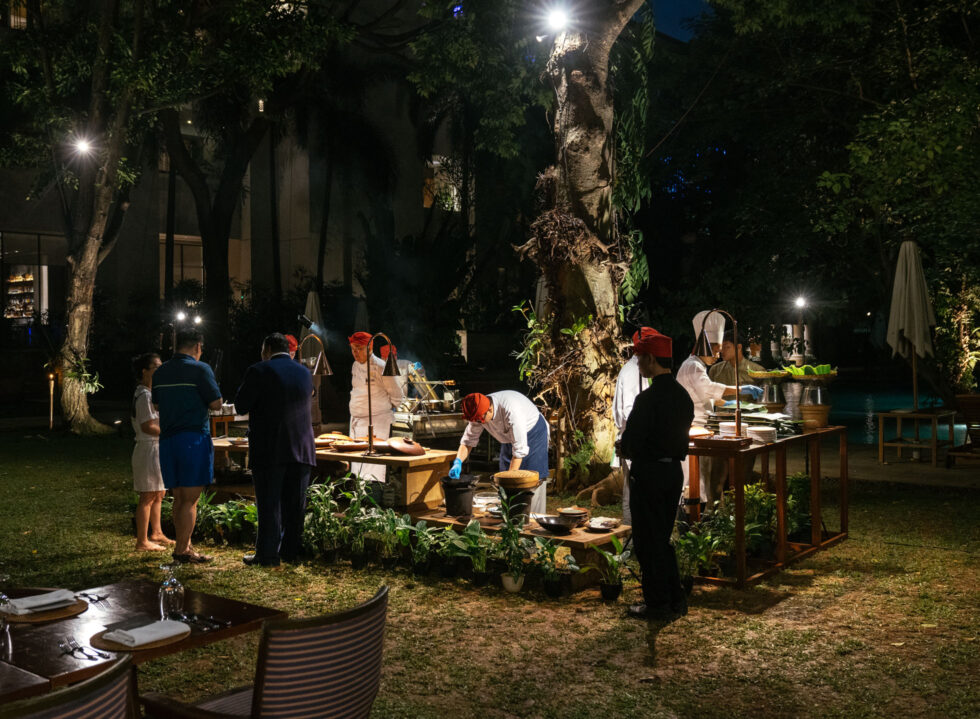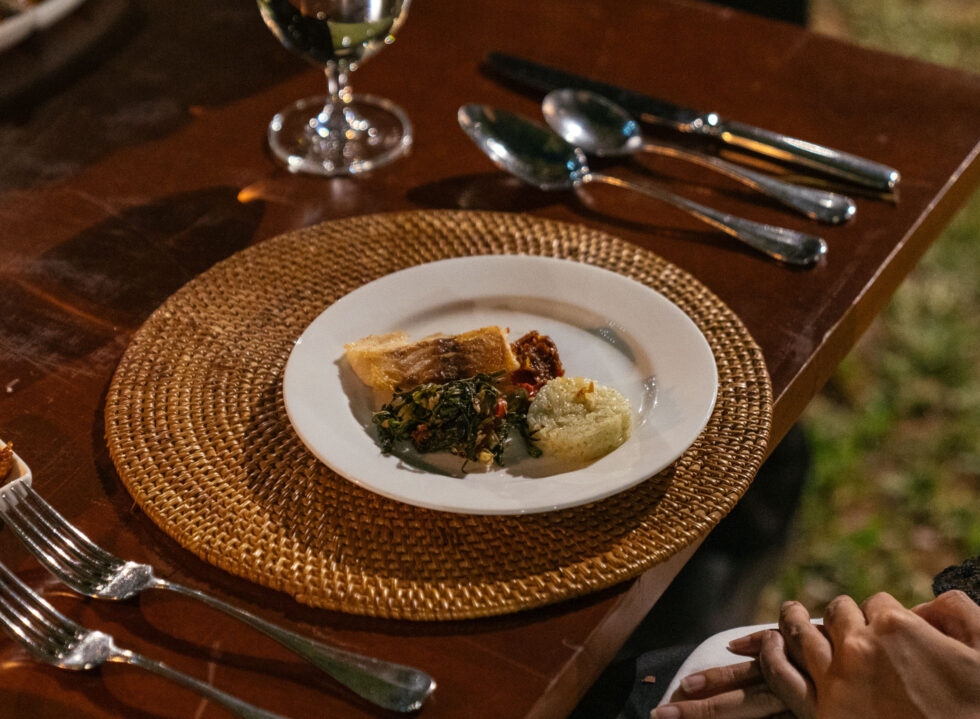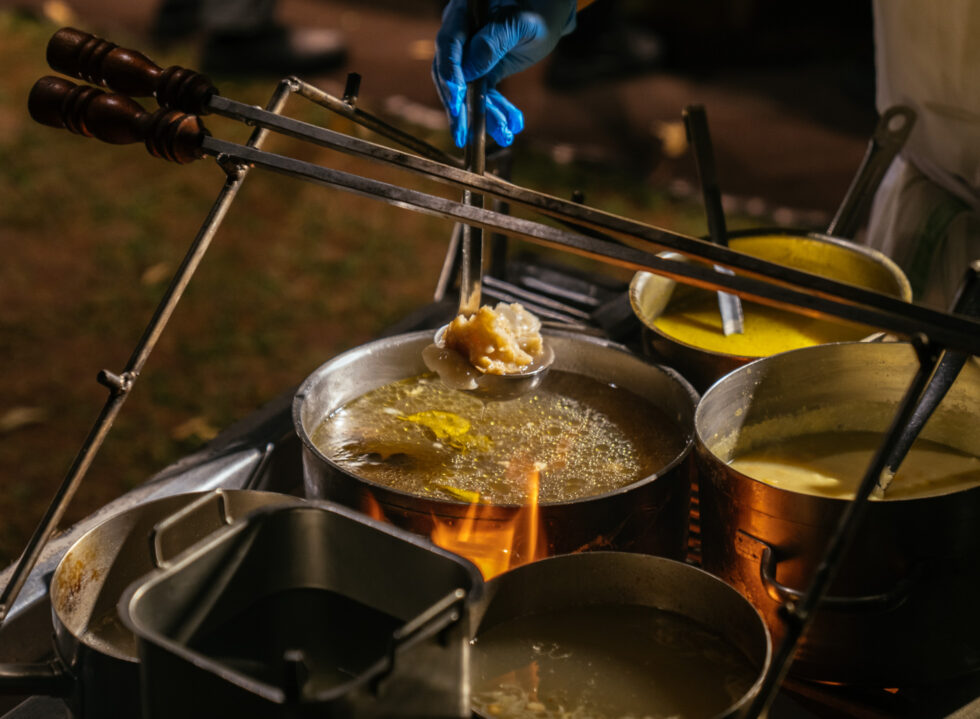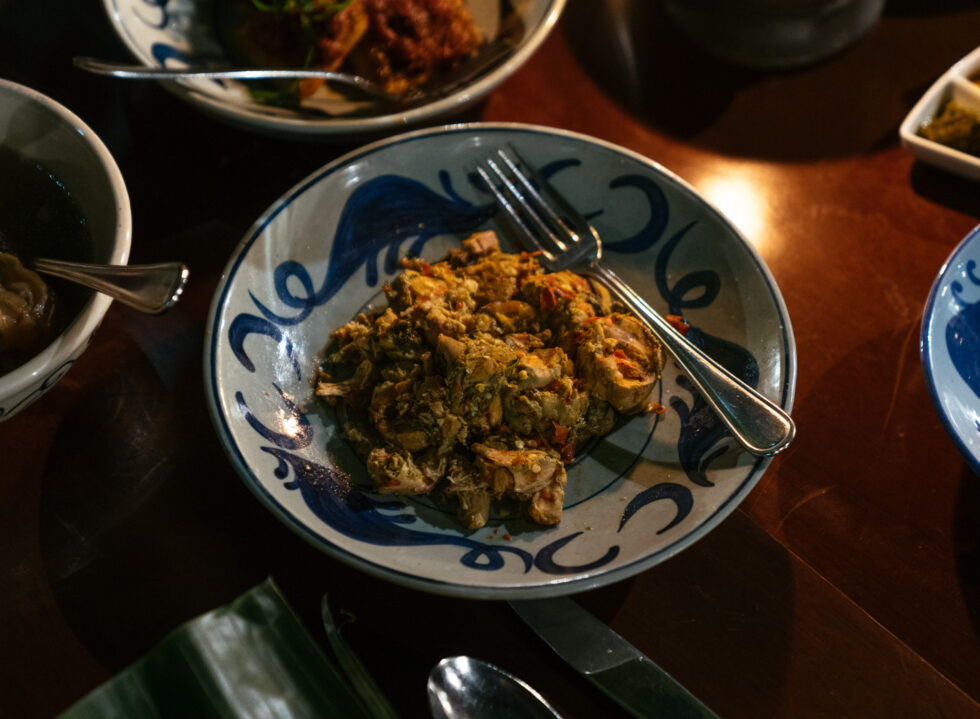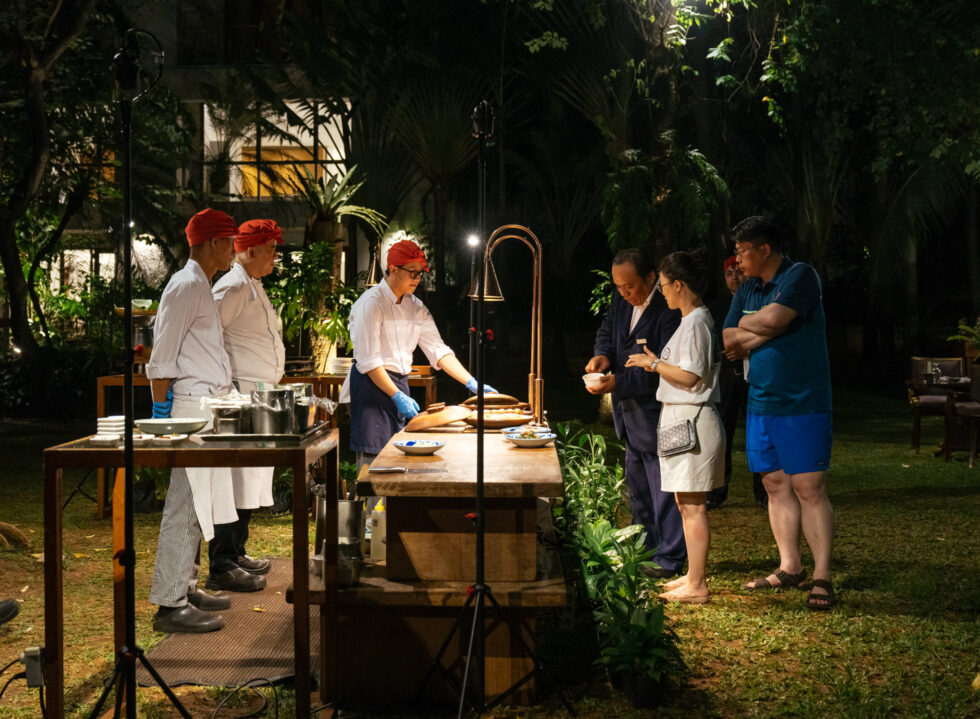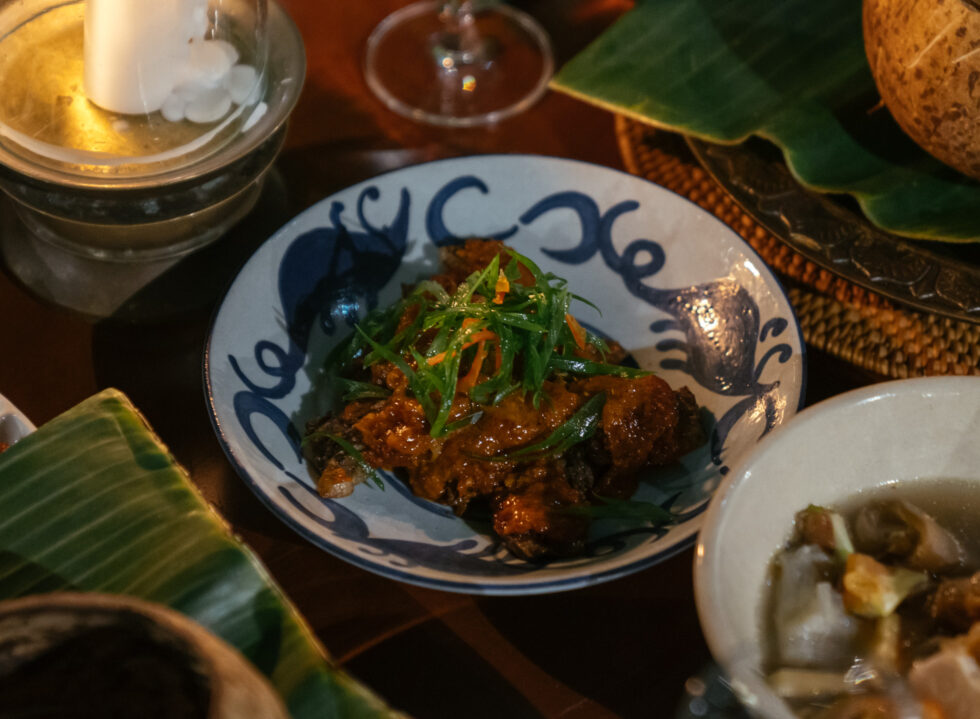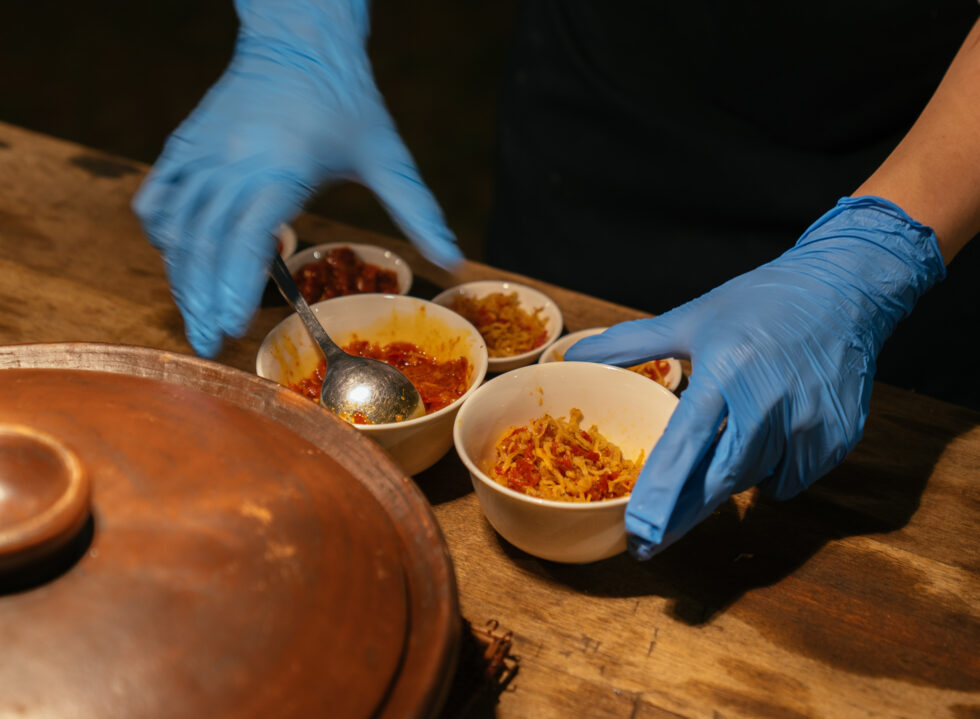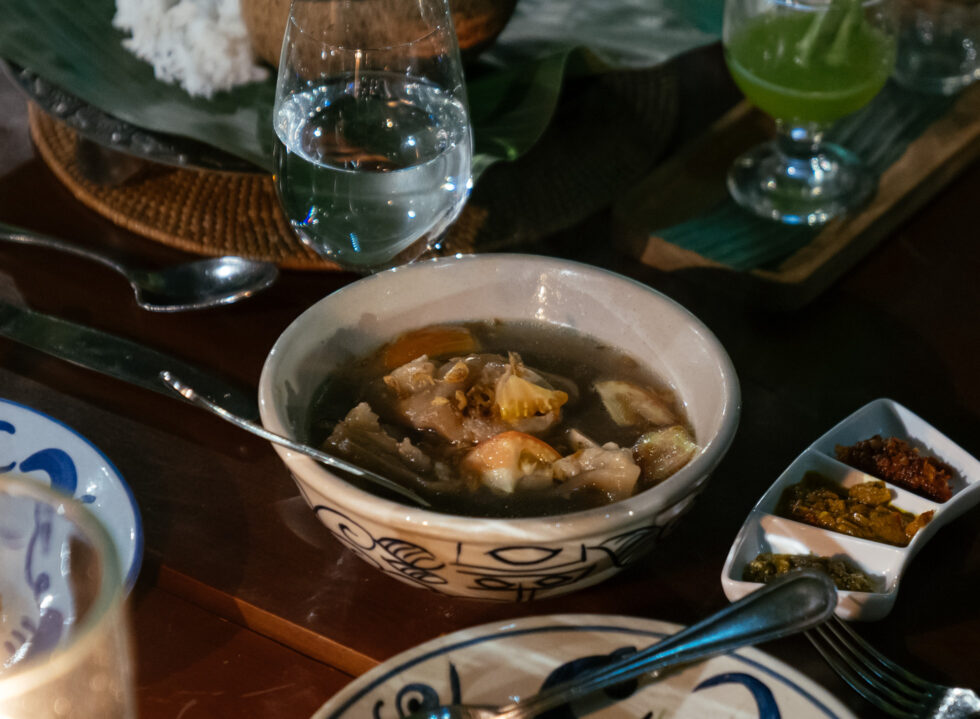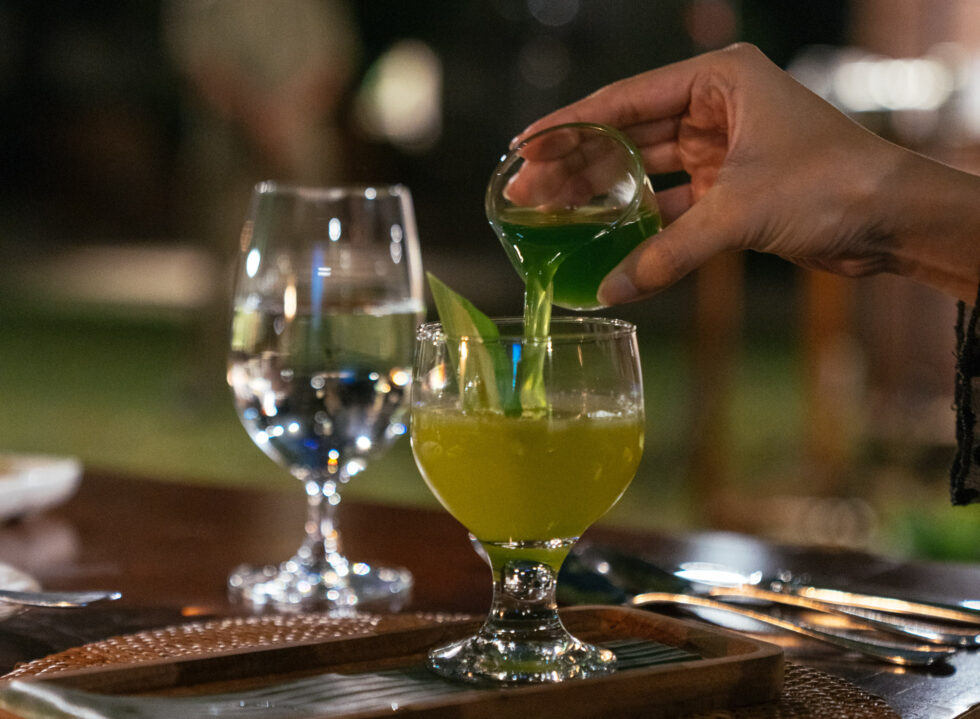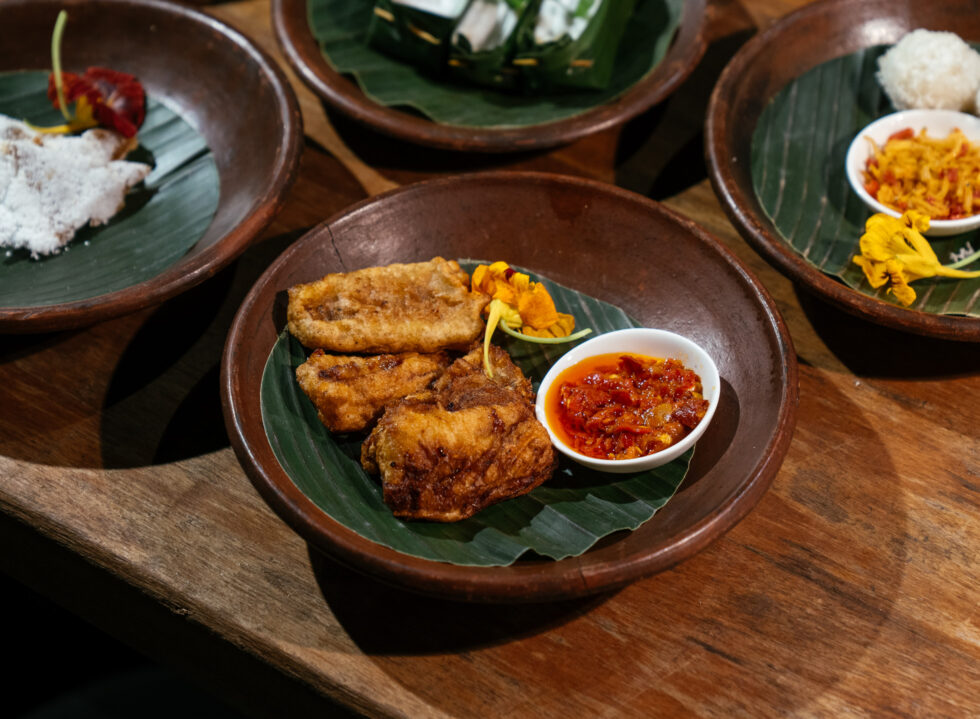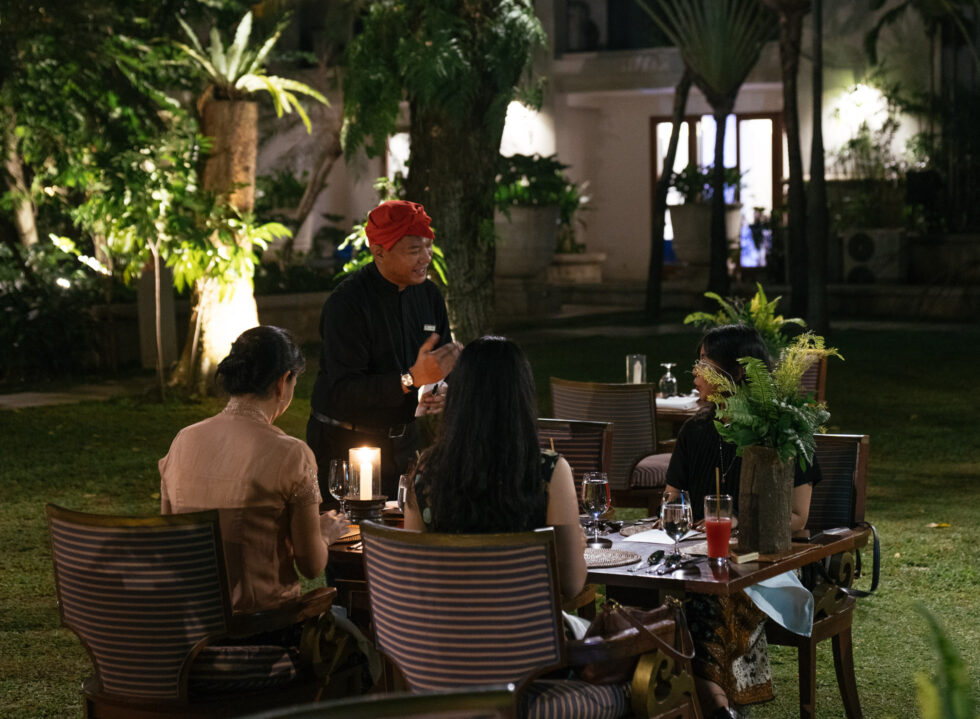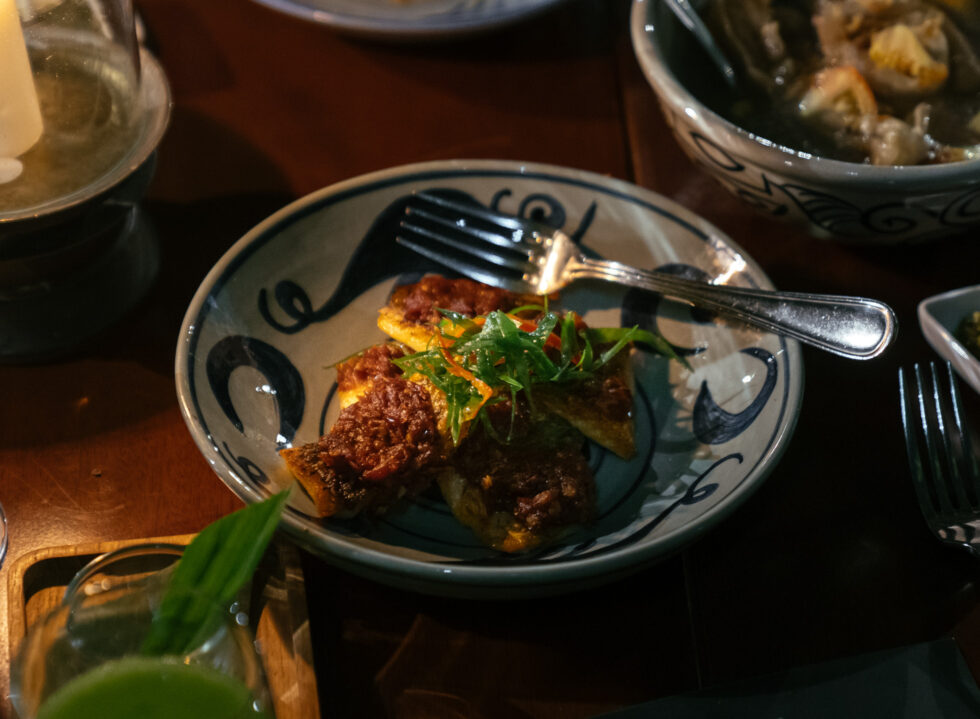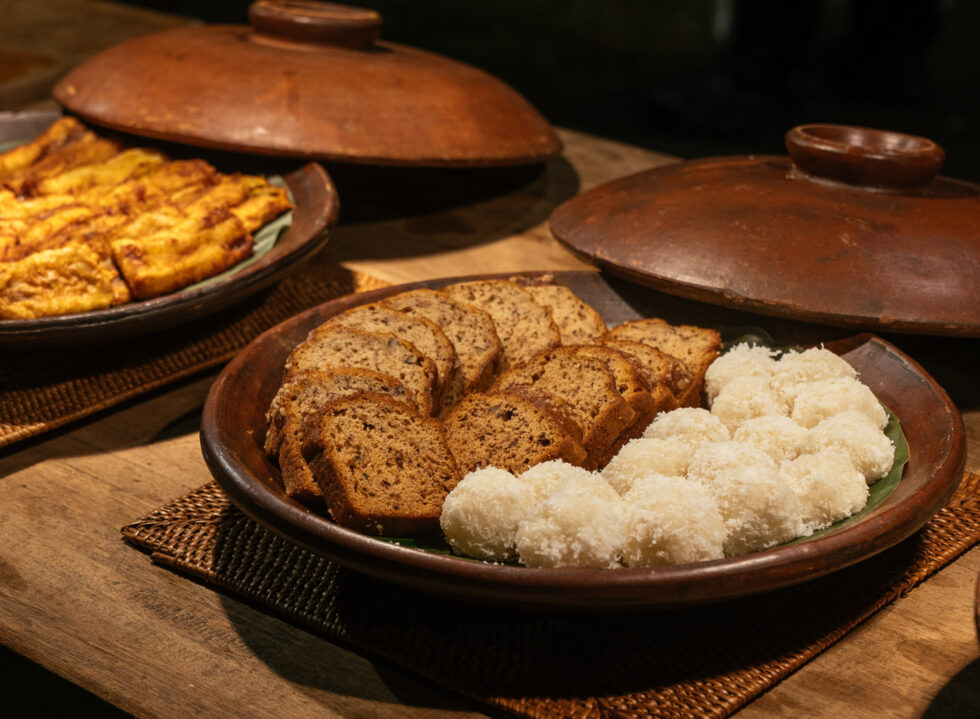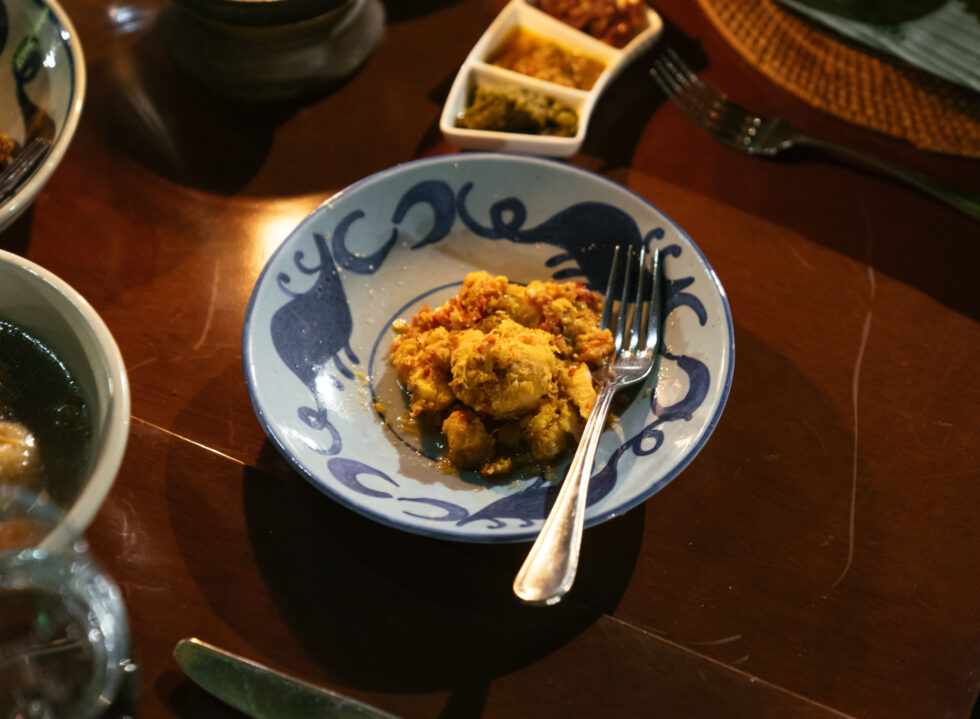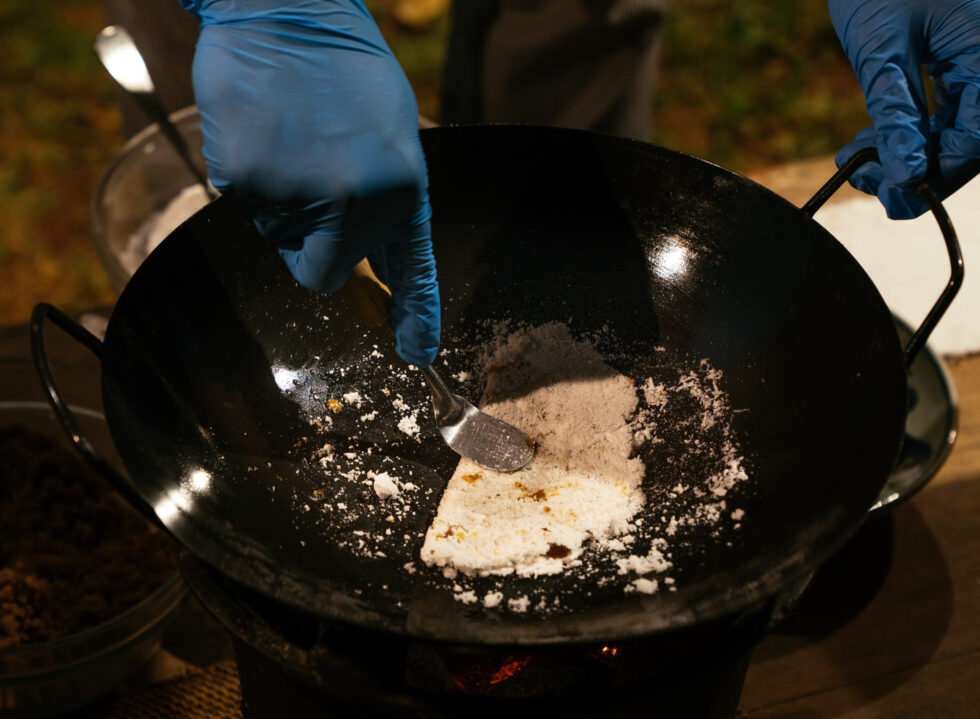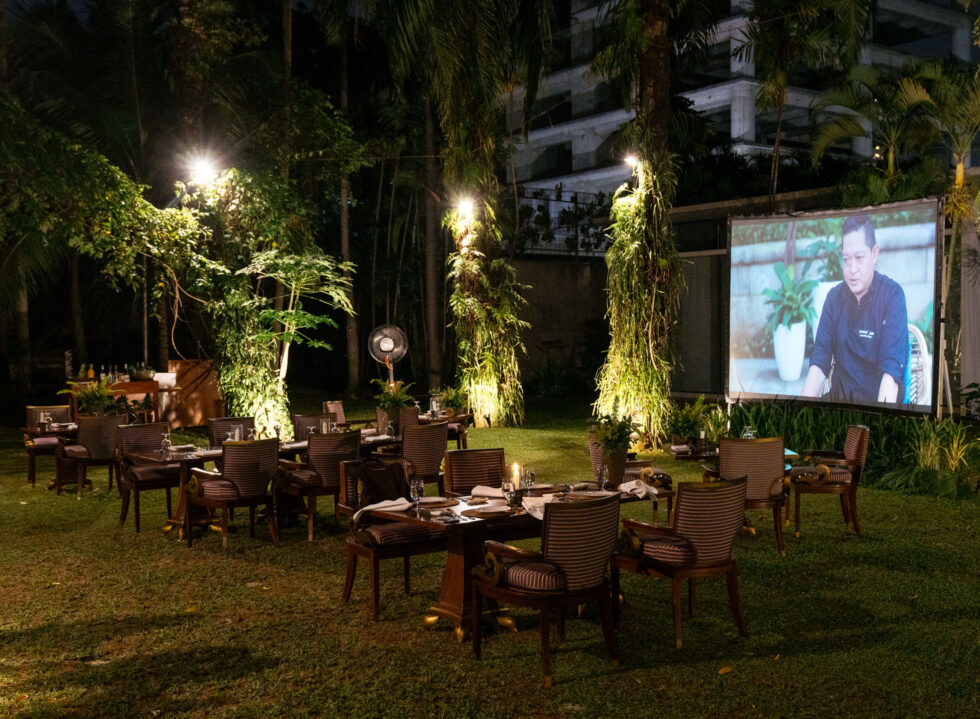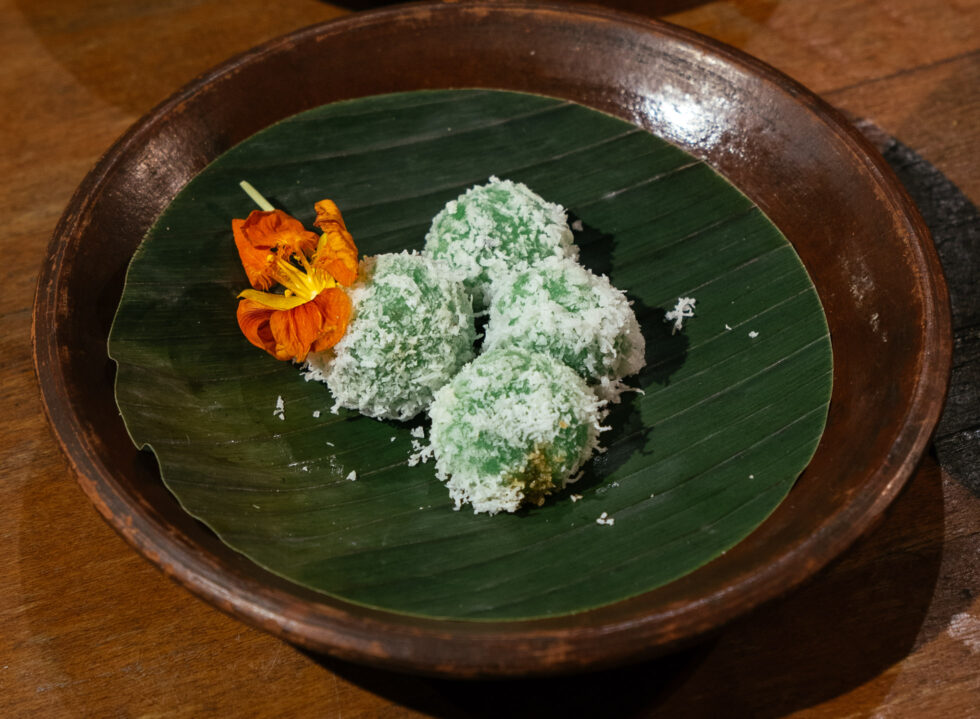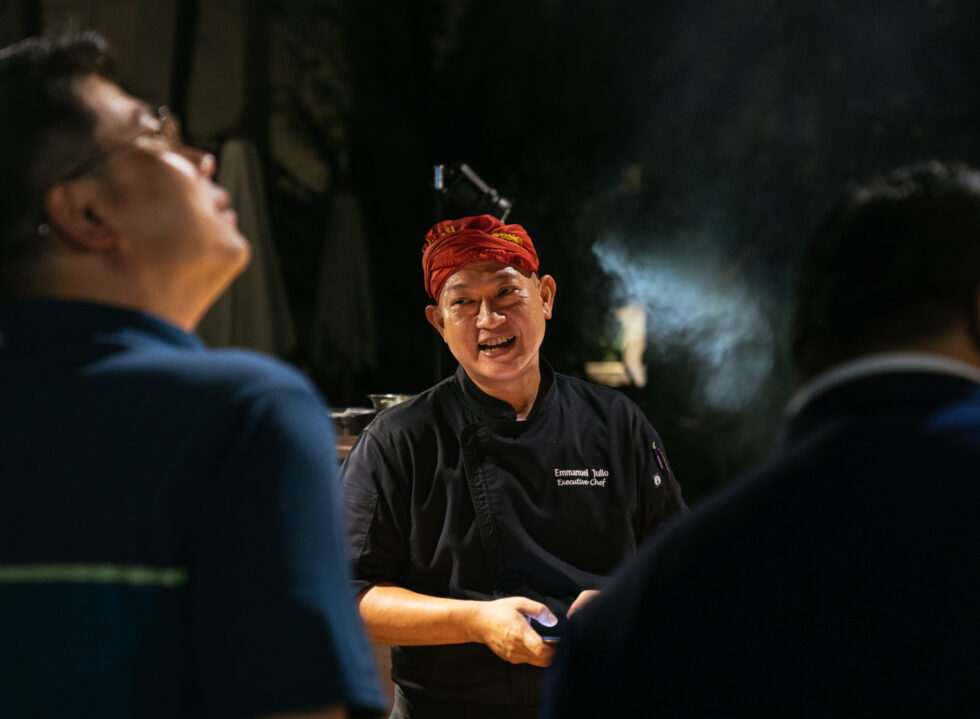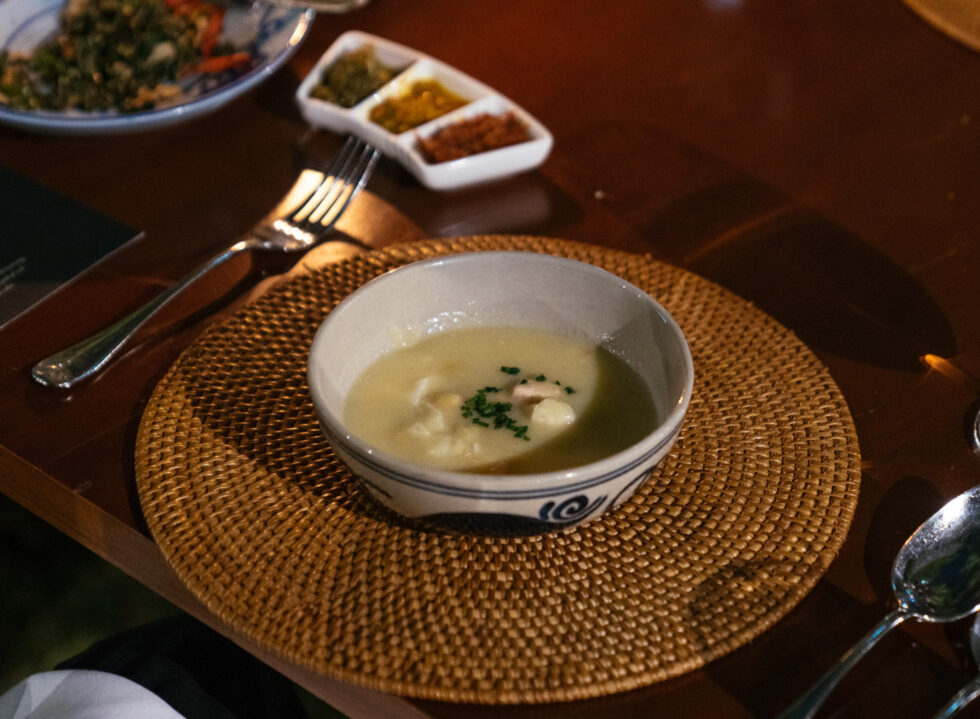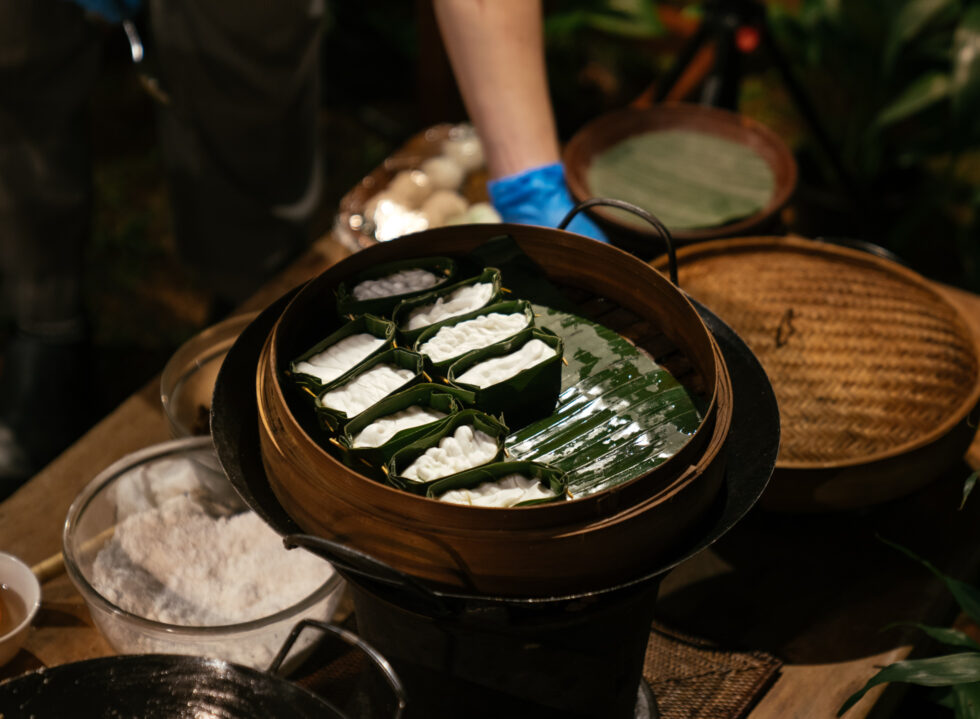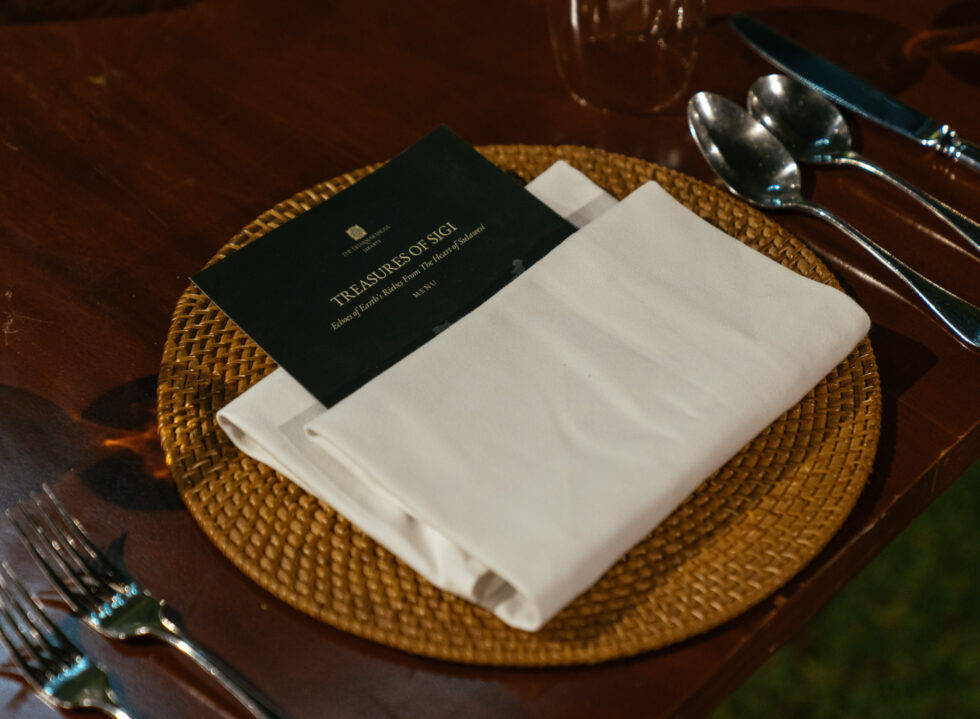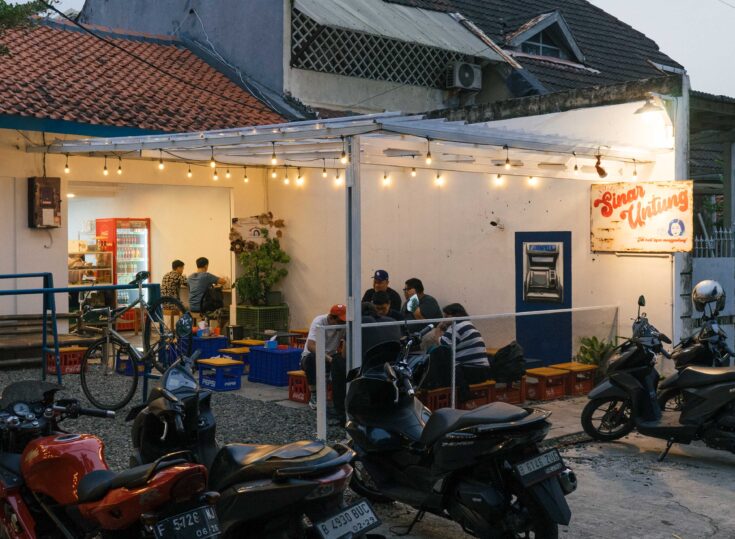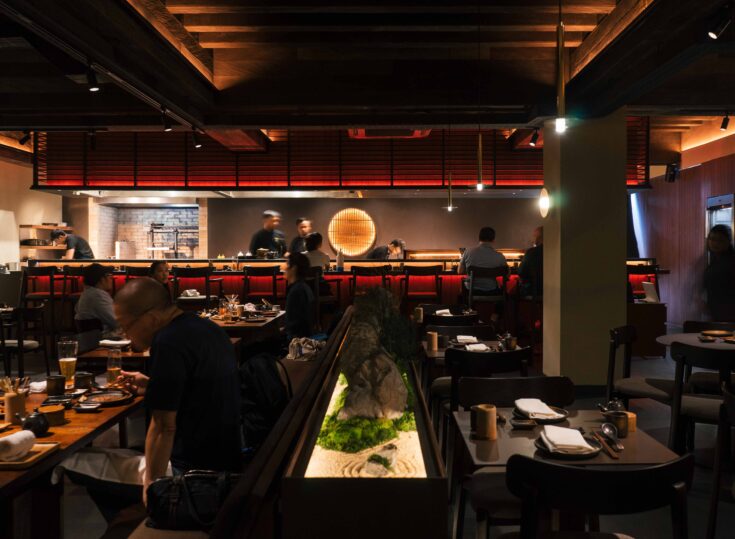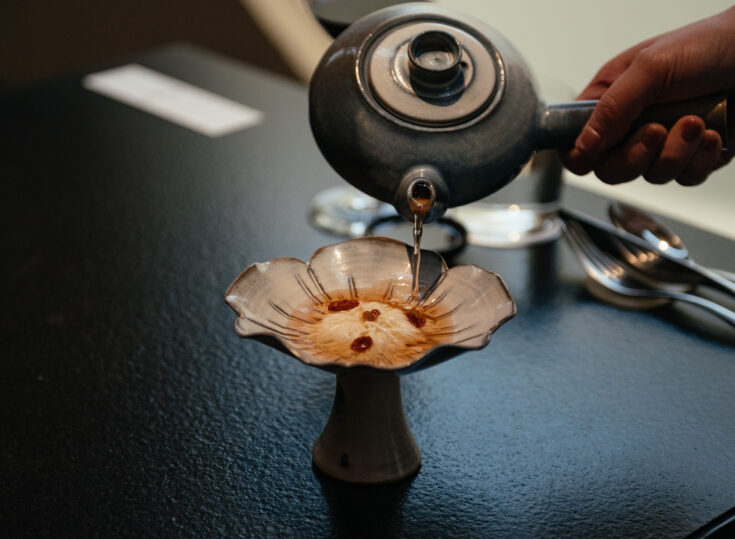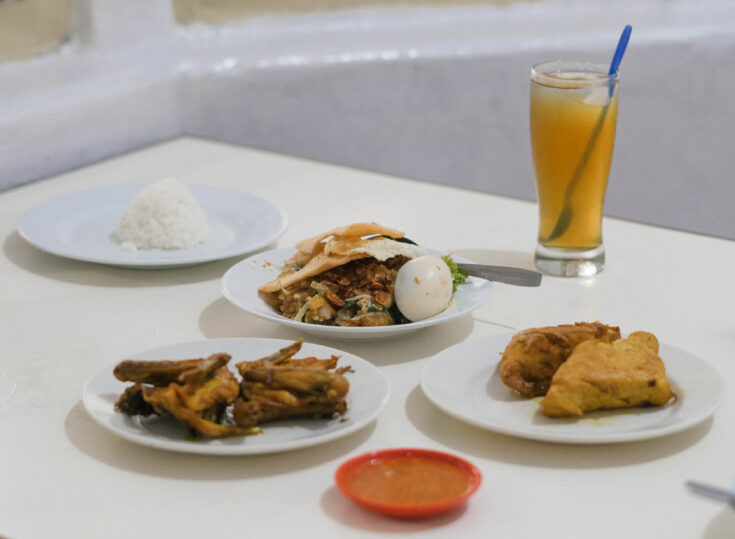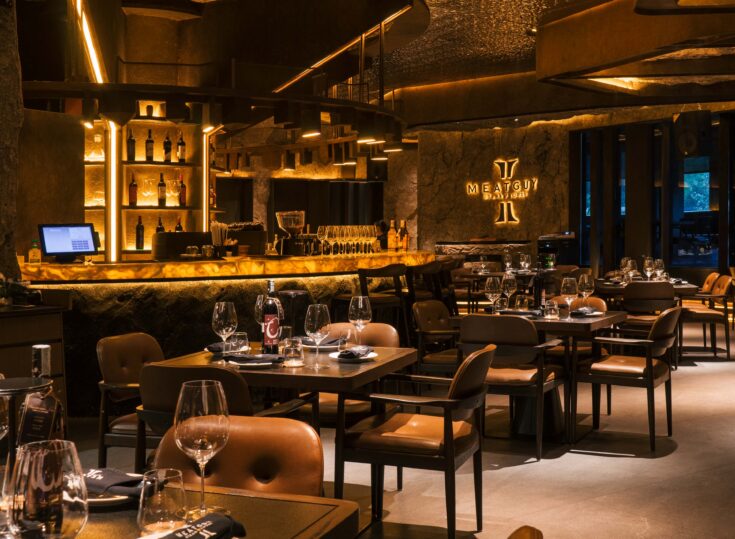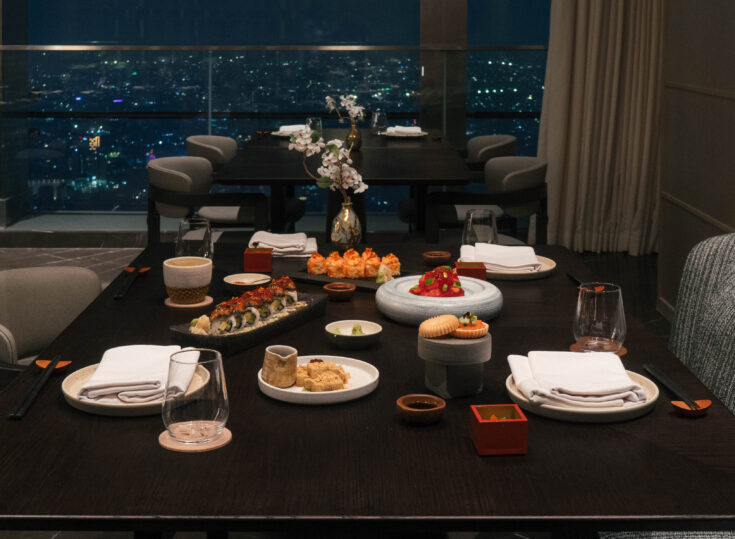Earlier this year in February, Executive Chef of The Dharmawangsa Jakarta, Emmanuel Julio, landed in Palu and journeyed on an hour’s rocky car ride to Desa Tomado in Sigi, a regency in Central Sulawesi. Together with a small team, they spent the next four days with the locals, exploring the village, natural landmarks and learning about the spiritual and cultural traditions that have long defined the region.
“There is something about the way they pay respect and honour their surrounding nature. You can immediately sense that their relationship [with nature] is not one of self gain, but that of nurturing, preserving and giving back,” Chef Julio observed.
Naturally, this approach is reflected through their cuisine. From foraging the Ranjuri forest for herbs and spices and harvesting local farms for fresh produce, to fishing in the nearby lake (still using a traditional bamboo rod), the people of Sigi’s approach to cooking is anchored in the philosophy of “only taking and using as much as you need”.
This is the guiding philosophy that Chef Julio and the team brought back to The Dharmawangsa. Tapping into their ongoing ‘Treasure’ series that spotlight lesser-known Indonesian communities and cultures, “The Treasures of Sigi” breaks down the cultural traditions and culinary experiences of the Central Sulawesi region through a lineup of events that runs until 31 May.
Served at the hotel’s open-air courtyard, the dinner features dishes from red and white rice with umbut enau soup—a clear, savoury broth made of boiled flesh of a palm tree trunk—and grilled Barramundi glazed with a refreshing sweet-and-spicy tomato sambal sauce to “Kaledo” or cow’s trotter soup.
Amidst appreciative hums and exchanges attempting to pinpoint the flavours and similarities with other Indonesian dishes (a close call is Manadonese), guests are also treated to tales from Chef Julio’s trip; from exploring forests to discover fresh vanilla and cacao pods, visiting Sekolah Alam—a self-funded school by 74-year-old Said Tolao—to lively evenings trying out Saguer, the traditional liquor made of fermented palm tree sap with the locals.
In between courses, diners move back and forth from their seats to the makeshift open kitchen to catch a glimpse of the food prep. In one corner, the rice and spiced chicken are steamed in bamboo tubes and grilled atop the fire, and on the other, the whiff of caramelised sugar lures diners to the dessert section and its familiar sight of jajanan pasar or market treats.
Steamed in bamboo steamers, the banana-leaf-wrapped Tetu, also known as Kue Perahu or ‘boat cake’ resembles the sweet and savoury Bubur Sum Sum, a pudding-like blend of coconut milk and rice flour bathed in palm sugar. While familiar, some desserts still pique curiosity with their unlikely pairings, such as Banana Fritters with a shallot and chilli relish or dense coconut balls with a side of dried chilli and salted fish.
Despite the use of chilli and spices, the dishes maintain a balanced character: not overly sweet or salty, with a spice level that tingles without overpowering the entire dish. “You can say it’s an ‘almost-there’ kind of taste. It’s not too much of one flavour, yet it’s layered in its simplicity,” explained Chef Julio.
Beyond the homey spread and the warmth of a shared meal, Treasures of Sigi impresses on diners the time-honoured traditions and sustainable practices that have long been passed down across generations—a reminder of values too easily lost in the thrum of city life.
